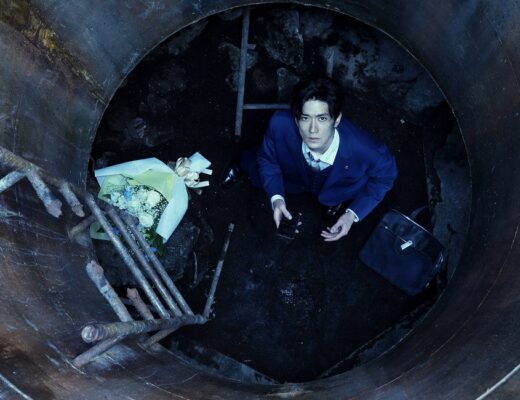Director Alan J. Pakula helped usher in a decade of gritty, morally ambiguous New York thrillers with 1971’s Klute, a nervy neo-noir starring Donald Sutherland as John Klute, a small-town private detective who investigates the disappearance of a business executive named Tom Gruneman. Tom, or someone impersonating him, had written a number of obscene letters to a New York City call girl named Bree Daniels (Jane Fonda), who had already done time for criminal prostitution after being questioned about Tom’s disappearance.
Bree is first shown on screen during a modeling call filled with pretty blondes on tulip chairs, each of whom are appraised and ushered out without a second thought. It’s all too analogous to Bree’s day job, where the johns blur together in an endless string of small talk and bland hotel rooms. After arranging a client, Bree walks out from under the shadow of a building and directly towards the camera, reappearing on the other side of a john’s door. She’s in her element: flattering but direct, warm but businesslike, and fully in control. She is the sort of woman who moans in bed while checking her watch, who buys herself flowers. But she’s confessed to the FBI that she thinks she’s being watched; she gets mysterious calls late at night and is afraid of the dark. Two years before, she was almost beaten to death by a client and, alone in her studio apartment, against Michael Small’s shivery score, we see how lonely and vulnerable she is beneath the shellacked layers of no-nonsense charm and hard-won resilience.
In order to be a successful actor, “you have to know yourself” and, perhaps more importantly, “kind of like yourself” a casting director tells her, a couple of minutes before ushering her out. This idea of what it means to act or impersonate runs throughout the film, particularly in how Bree considers tricking a form of acting, an intellectual exercise that compensates for her revulsion at the physical act. In between clients, she goes to auditions and casting calls, trying to be a “real” actor and facing constant rejection. There is only one place where she can be herself: her therapist’s office, where she confesses her addiction to the power and control that tricking offers, though the meagerness of it all causes her to dissociate even further.
Fonda, who won an Oscar for her performance, plays Bree’s interior life as so teeming with frustration and rage and disgust that it’s practically a separate character. Her therapy session scenes in particular, almost all of which were improvised, are all the more riveting when you realize they took place fifty years ago. We take media portrayals of self-aware women for granted these days, but in 1971 it was positively groundbreaking to have not only a “positive” portrayal of a sex worker on screen, but one who so defiantly reveled in her agency, even when it made her feel like shit.
Klute, meanwhile, is acting as a private investigator: before taking this case, he’d never even spent time in New York. It doesn’t stop him from moving into a basement apartment in Bree’s building and tapping her phone. With his plain black suits and melancholy air, he’s the opposite of the slick, wise-cracking detective trope that was a staple of early Hollywood. His understated cool nonetheless gets under Bree’s skin, and eventually they join forces to track down Gruneman, who may or may not be her attacker. Their connection deepens even as she fights the urge to sabotage their burgeoning relationship.
Klute is the first in what became known as Pakula’s “paranoia trilogy,” and it lives up to the moniker. Legendary cinematographer Gordon Willis, who would go on to work with Woody Allen and Francis Ford Coppola, deftly captures Bree’s trauma and claustrophobia by training his lens through the murky panes of a glass elevator or the shadowy expanse of a factory floor. Peter Cable (Charles Cioffi), the man who hired Klute, is shown almost exclusively in a high-rise office tower, looming over the seedy proceedings of the call girls, pimps, and junkies who scurry through the city’s underbelly. But he’s the most morally corrupt of them all, and when he plunges to his death, having been discovered as Gruneman’s murderer, it’s Bree and Klute who are left intact. As she prepares to leave the city with Klute, we hear Bree wryly tell her therapist, “You’ll probably see me again next week.” But for once, she is — at least for the moment — giving up control. As the credits roll over a shot of her empty apartment, we see that there may be something better than a happy ending: a second chance. What she makes of it is, as with everything else in the film, up to her.
Part of Kicking the Canon – The Film Canon.







